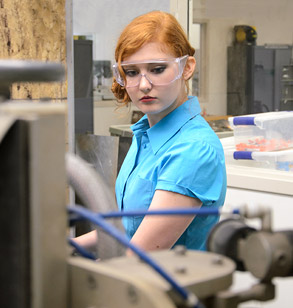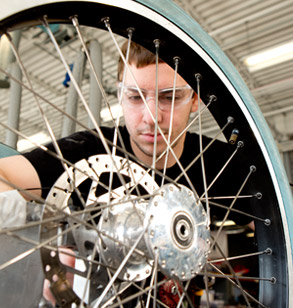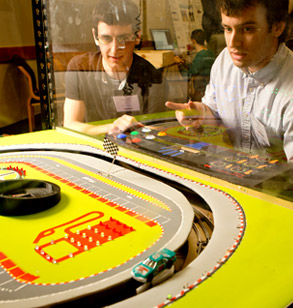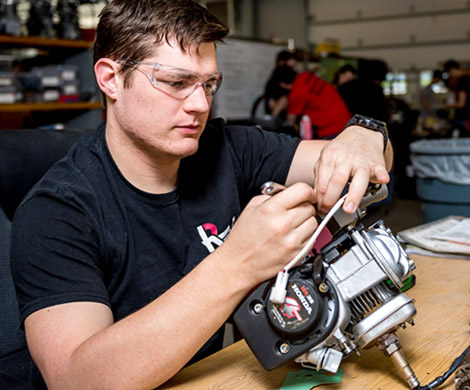Requirements for Bachelor of Science in Mechanical Engineering
Our mechanical engineering curriculum is designed to prepare you for careers in industry, government, education, and private consulting, as well as for graduate study.
- 86 Required engineering credits
- 27 Required math credits
- 16 Required foundational science credits
- 8 Required writing and communication credits
- 1 Required Foundations for Rose-Hulman Success credit
- 16 Technical elective credits
- 8 Free elective credits
- 4 Math/science elective credits
- 28 Humanities, Social Sciences, and the Arts credits
Minors and Areas of Concentration in Mechanical Engineering
You can enhance your ME major with a focused study in a specific subject area. If your major is not ME, but you want to add a minor, we offer a Thermal-Fluids minor. Click the links below for more details on the ME concentrations and minor:
Multidisciplinary Robotics Minor
A multidisciplinary minor in robotics can be tailored according to your specific areas of interest. See the course catalog for details.
Hands-On Opportunities
You’ll have plenty of opportunities to use your classroom lessons for real-world problem solving. Multidisciplinary project teams may tackle process improvement for an industrial partner, or develop humanitarian solutions for a local organization. And, student teams compete with efficient vehicles, underwater robots, and more.
Careers in Mechanical Engineering
A degree in mechanical engineering will give you the foundation to pursue a career in industries ranging from automotive to biomedical, consumer goods, or aerospace.

Process Improvement Engineer
Process improvement engineers work in a variety of industries to identify and develop ways to streamline production and boost efficiency. A process improvement engineer will often collaborate with other engineers and technical personnel, suppliers and others, and must have excellent communication skills.

Mechanical Design Engineer
Mechanical design engineers work in companies across a wide range of manufacturing industries, often developing consumer goods, medical devices, automobiles and automotive parts, and more. They must apply engineering principles to ensure their designs use appropriate materials, meet industry and safety standards, and can be manufactured cost-effectively.

Automation Engineer
Automation engineers work to improve the efficiency and safety of manufacturing operations by designing and programming automated equipment. They must have both mechanical expertise and electrical controls knowledge and may find themselves developing anything from large welding robots to food packaging equipment.

Dr. Richard Onyancha
Dr. Richard Onyancha specializes in manufacturing, solid mechanics and metrology. He recently spent a year as a Fulbright Scholar working at Zambia's Copperbelt University, helping the university review its engineering curricula, mentoring younger faculty members, assisting with the writing of several research proposals, and developing relationships with local industries.

Contact Us
Department of Mechanical Engineering
Moench Hall C103
5500 Wabash Avenue
Terre Haute, IN 47803
812-877-8422
nicoson1@rose-hulman.edu

